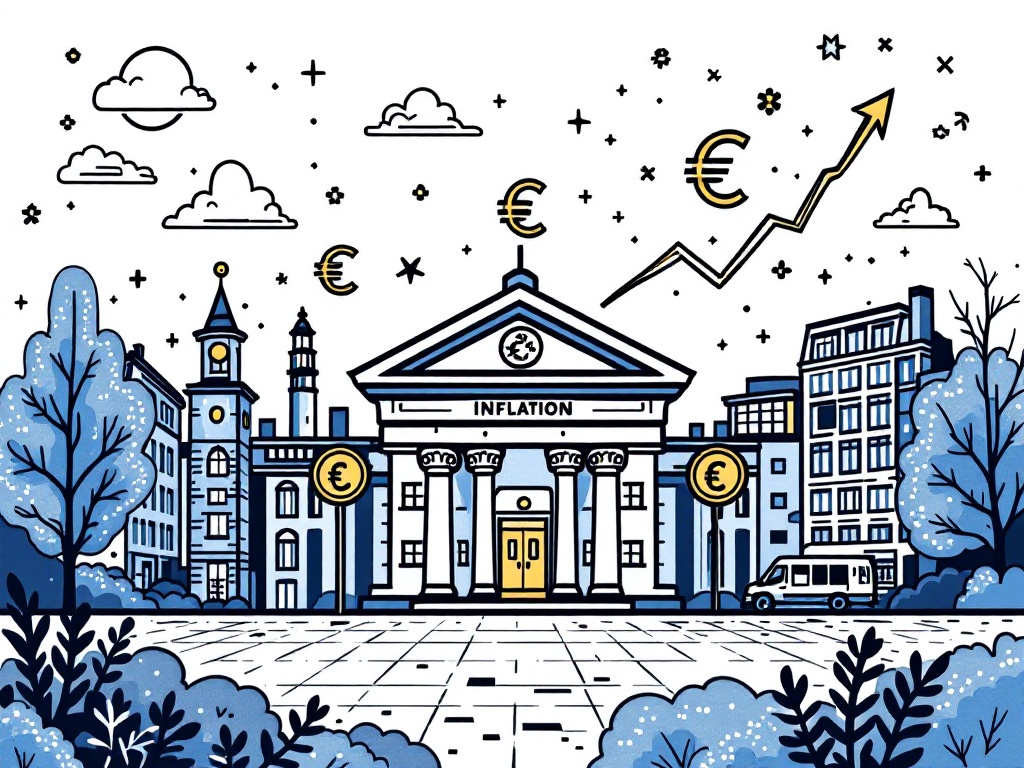Eurozone Inflation Surges to 2.5%, Prompting ECB Policy Review

Frankfurt, Monday, 3 February 2025.
Eurozone inflation rose to 2.5% in January, surpassing expectations and challenging the European Central Bank’s policy direction as global markets await potential economic impacts.
Unexpected Inflation Surge
According to the latest Eurostat data, the eurozone’s annual inflation rate climbed to 2.5% in January 2025, up from 2.4% in December 2024 [1][2]. This increase, which exceeded market expectations of 2.4%, marks the highest inflation rate since July 2024 [2]. The surge was primarily driven by a sharp acceleration in energy costs, which jumped to 1.8% from 0.1% in December [2].
Component Analysis
The inflation breakdown reveals varied pressures across sectors. While services inflation showed a slight moderation to 3.9% from 4.0%, and food, alcohol, and tobacco prices decelerated to 2.3% from 2.6%, non-energy industrial goods maintained a steady rate of 0.5% [2]. Core inflation, which excludes volatile food and energy prices, remained stable at 2.7% for the fifth consecutive month, slightly above market forecasts of 2.6% [2][5].
Regional Variations
The inflation picture varies significantly across major eurozone economies. January 2025 data shows German HICP inflation at 2.8%, while French HICP inflation registered at 1.82%, coming in weaker than expected. Spanish inflation proved more persistent at 2.9%, exceeding forecasts [5].
Policy Implications
The ECB’s recent policy decisions reflect a careful balance between inflation control and economic support. Following their January 30, 2025 meeting, the ECB implemented a rate cut to 2.75%, marking their fifth reduction since June 2024 [5]. Markets are now focused on the next ECB monetary policy meeting scheduled for March 5, 2025, where these latest inflation figures will likely influence decision-making [5]. According to Morningstar’s analysis, approximately 75 basis points of cuts are anticipated throughout 2025, contingent on inflation remaining under control [5].